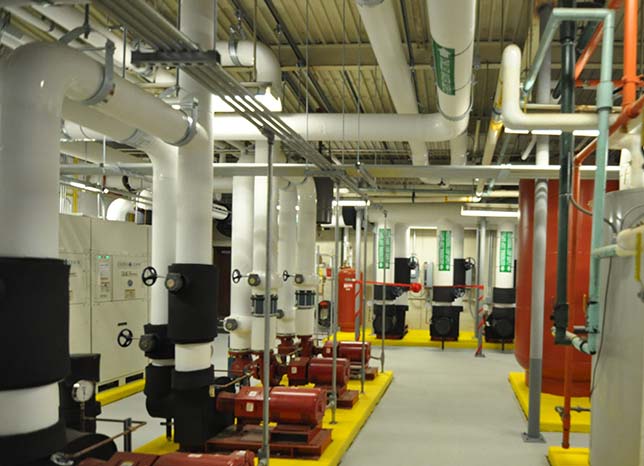News
Community College Taps Geothermal to Cut Power Usage
- By Dian Schaffhauser
- 09/12/17
A community college in Michigan has turned to geothermal technology to reduce what it spends on heating and cooling and to shrink its carbon footprint. Monroe County Community College recently made the switch from a conventional heating, ventilation and air conditioning (HVAC) system to a more energy-efficient and earth-friendly geothermal-based system.
The college's new setup uses an army of buried pipes filled with water to maintain constant temperatures for delivering "free" energy to five buildings on campus. A well field houses 288 wells that are 350 to 400 feet deep, a subterranean distribution loop expected to last for 50 years. The field, which sits on a three-acre piece of land in a corner of the college's main campus, contains a closed-loop system for heat transfer. It's called closed because it doesn't pump groundwater in or out; its 10,000 gallons were fed to the pipes from the college's connection to the city water system.

A long view of the geothermal room in Monroe County Community College's Audrey M. Warrick Student Services/Administration Building. Source: Monroe County Community College.
Now, the earth's own temperature will keep that water at "a temperature that requires less additional energy to heat or cool it to acquire specific comfort levels, depending on the season," according to Jack Burns, director of campus planning and facilities, who oversaw the project.
The initiative took two years to build and $16.1 million, which was financed by the college over 20 years. The school worked with Ameresco, an energy services provider with offices in the United States and the United Kingdom.
The geothermal system now serves climate control to five campus buildings, all built in the late 1960s or early 1970s. Additional buildings will be added to the roster once their HVAC systems have reached end-of-life. One structure on campus, built in 2013, already has a geothermal-based HVAC system.
With the new installation the college expects to reduce its yearly energy consumption by about 160,000 kilowatt hours annually and save $275,000 per year in electricity, gas and water costs for the next 20 years. According to the college, the project will reduce its annual carbon emissions by 1,088 tons.
"This was an investment in the present and future of MCCC," said Lynette Dowler, chair of the college's Board of Trustees, in a college press release. "The geothermal-based HVAC system provides state-of-the-art, sustainable energy creation to maintain a comfortable environment for teaching and learning. It will serve us well environmentally and financially for many years to come."
About the Author
Dian Schaffhauser is a former senior contributing editor for 1105 Media's education publications THE Journal, Campus Technology and Spaces4Learning.

